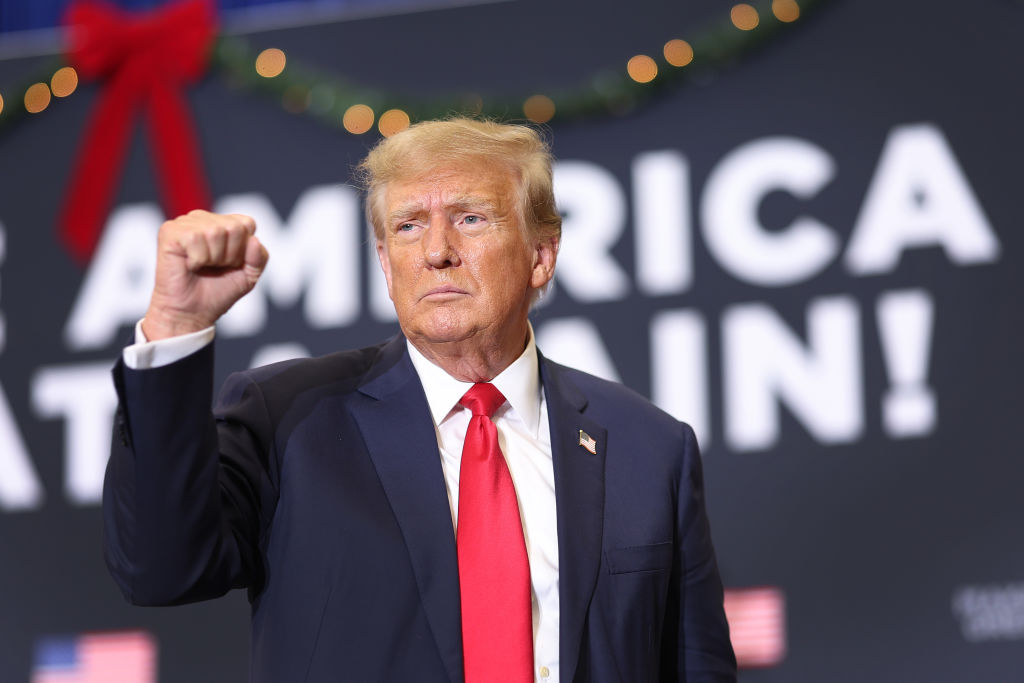2024 is set to be the year of elections in Europe, with at least six national parliamentary votes scheduled along with the European Union contest. But the outcome of the United States’ presidential and Congressional elections might be as important for the continent as its own. Here’s what Europeans ought to know as the races kick off in earnest today.
The presidential contest will be most important for Europe as the American President has almost complete control over the country’s foreign policy. Congress can sometimes interfere in a president’s policy, especially when he requires authorization for expenditures. But aside from those instances, the president can largely set the agenda with respect to the United States’ relations with foreign governments.
This race poses more risks for Europeans than any other since the beginning of the Cold War. Republican Nikki Haley would be a traditional pro-NATO candidate if she wins the Republican nomination, but that looks very unlikely at this stage. The two likely contenders, Democrat Joe Biden and Republican Donald Trump, differ markedly on their attitudes toward the traditional transatlantic alliance.
Biden is a staunch Atlanticist and sees continued military and economic ties as essential to global security. Trump, always leery of the U.S.-led global network of alliances, will likely be even less interested if re-elected in continuing traditional policy than he was in his first term.
A Trump victory would likely force European nations to make hard decisions they have long avoided. Trump would almost certainly move to end military support for Ukraine, thereby pushing the beleaguered nation into peace negotiations without a strong hand to play. European backers of Ukraine would then have to decide whether they could plausibly maintain or increase support for Kyiv in Washington’s absence. Given the relative weakness of continental militaries and defense industry capabilities, that would be a difficult choice to make with European electorates already tiring of the long war.
A Trump victory would also likely put NATO under pressure. Trump sees the failure of Angela Merkel’s policies toward Russia as vindication. He had urged her to stop reliance on Russian gas only to be rebuffed. Armed with this, he would almost certainly insist that NATO nations rapidly commit to the 2 per cent of GDP defence spending target many have long eschewed. Germany’s beleaguered coalition government would face the harshest pressure, and one should expect Trump to be prepared to move U.S. troops out of Germany – as he tried to do in his first term – unless his demands are quickly met.
A Biden victory would not be a bed of roses, either. U.S. subsidies for manufacturing and green technology would likely increase in his second term, putting more economic pressure on the slow-growing E.U. Biden’s wing of the Democratic Party sees government-led industrial resurgence as key to their economic, political, and climate policies. They might moderate some under concerted pressure, but they won’t abandon their long-term goal of making the U.S. more economically self-sufficient.
European nations will also see their economic ties with China under pressure regardless of who wins. Both American parties now see China as a global threat, and Trump or Biden will work to reduce China’s economic growth rate and its access to advanced technology. America’s effort to cajole Europeans into banning Huawei from their 5G networks will likely look like a soft sell compared to what America will want in the next presidential term.
Counterintuitively, Trump might be easier to sway on this than Biden. He has always had a tendency to see foreign policy more through transactional and economic lenses than through the ideological and power-politics approaches favored by Biden. One can imagine Trump softening on China if it engages more favorably with the U.S. on a host of economic matters, such as increasing purchases of U.S.-manufactured goods and products. If he and Chinese President Xi Jinping move in that direction, that could mean European economic ties with China could also be under less pressure.
The Trump-Biden contest will likely not be a decisive victory for either man. American voters are sharply polarized, with partisans of each side convinced the other wants to limit democracy and suppress their rights. Both are sharply disliked, but each has a substantial and loyal cadre of supporters. Absent an unexpected recession or military reverse, Biden will probably retain enough support to have a fighting chance against Trump.
The election outcome will come down to two factors: America’s Electoral College and the attitudes of voters who dislike both men. America’s 18th Century Constitution provides that each state select a number of electors equal to the number of Representatives and Senators from each state. Tradition has established that those electors are chosen by popular vote in each state, with the winner receiving all of a state’s electors even if he is short of a majority (two small states, Maine and Nebraska select some electors by Congressional districts). Winning a majority in the Electoral College, not in the national popular vote, determines who goes to the White House.
Trump’s electoral coalition gives him a clear advantage in this contest. He has the overwhelming support of whites without 4-year college degrees, and they are the major demographic group the crucial Midwestern states of Michigan, Pennsylvania, and Wisconsin and the Southern state of Georgia. Democrats have become the party of the white college set, which means they win large margins in places like California, New York, and Massachusetts. But they were going to win those states anyway, making their Trump-era popular vote gains irrelevant. Trump will almost certainly win the Electoral College if he loses the national popular vote by 4 points or less.
This makes Biden’s chances dependent on winning a large number of votes from people who disapprove of his performance in office. Polls show up to a quarter of Americans dislike or disapprove of both men, and they are currently tending to say they are either undecided or back a minor party candidate.
The shocking outcome of the 2016 election came about because Trump won a decisive majority among the 18 per cent who disliked both him and Democrat Hillary Clinton. These voters didn’t make their final choice until the final days before the election. One should therefore pay less attention to who is ahead in polls now and focus like a laser on these men and women who will choose between what they view as the lesser of two evils. They will decide who triumphs.
This year’s U.S. election will have a greater impact on global affairs than any since the 1980 vote that brought Ronald Reagan to power. Europeans of all political stripes should use this year to prepare for the inevitable alternatives, neither of them clearly pleasant, that they will soon face.





The U.S. economy is Biden’s biggest liability — and Trump’s greatest strength